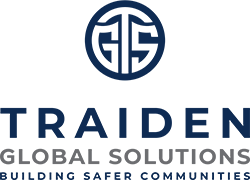Kitchen Safety
Food quality and fast service are often the main focus in a commercial kitchen, but without safety, the cuisine and the workers can come up cold.
A kitchen with good housekeeping can reduce slip and trip hazards. Stored materials should not obstruct pathways and exits. If liquids are spilled on the floor, they should be mopped up and a wet floor warning sign posted. Non-slip floor mats ensure that spills don’t become slips.
Kitchen heat sources such as ovens, grills, range tops, deep fat fryers, and microwaves pose burn hazards. Using caution near hot surfaces, pots and pans, and utensils can prevent burns. Workers should avoid splashing water or drinks into hot oil or grease to prevent spattering. Cooking equipment and vents should be cooled before cleaning them; it is best to clean equipment at the start of a shift.
Other heat sources include boiling water, steam baths, sinks and dish washers. Reaching over boiling pots and hot water sources can lead to severe burns from steam. When opening pots or steam baths, workers should stand to the side and use the lid as a shield.
To prevent fires, workers should monitor cooking food carefully. Hot grease and oil should never be left unattended. Oils and grease should be cooled before transporting them. Grease traps and grill surfaces should be cleaned frequently and flammable items should not be kept near flames or heat sources. It is important to know and practice emergency procedures, first aid, and how to use a fire extinguisher.
Comfortable, supportive shoes are essential for kitchen workers due to long periods of standing; foot rests and anti-fatigue mats can also help. Moving and stretching frequently and rotating tasks can help workers avoid static postures and fatigue. To reduce overreaching, workers should keep their frequently used items closest to them and store seldom used items further away. Proper lifting techniques when moving heavy pots and food items can prevent strains.
Wearing close-fitting sleeves prevents catching them on pot handles, oven and stove knobs, or dangling them in flames or hot oil. Shoes should have cushioned insteps and slip-resistant soles. Aprons provide an added layer of protection from splashes of hot water or grease. Hand mitts and pot holders should be used when handling hot items and hand protection such as mesh gloves may be worn when cutting and using sharp knives.
If you can’t work safely, stay out of the kitchen.
The above evaluations and/or recommendations are for general guidance only and should not be relied upon for legal compliance purposes. They are based solely on the information provided to us and relate only to those conditions specifically discussed. We do not make any warranty, expressed or implied, that your workplace is safe or healthful or that it complies with all laws, regulations or standards.
